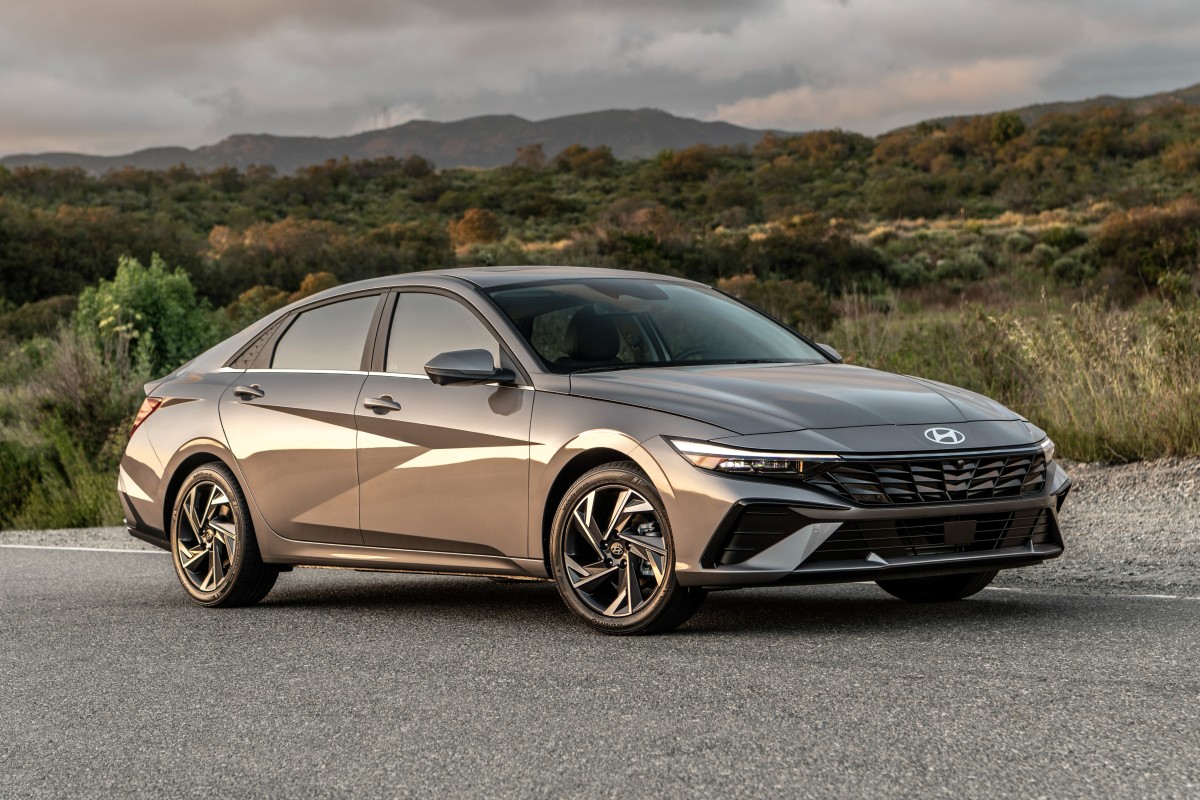When gasoline prices rise, many car shoppers begin to consider the cost of their daily commute as a critical factor in their car-budgeting equation. The lower a vehicle's fuel economy, the more it will cost to own in the long run.
But while gas mileage is a major factor, there are plenty of others to consider when buying a car for commuting.
Fuel Economy

If your primary concern is your wallet, fuel economy should be at the top of your checklist when shopping for a commuter car. The Environmental Protection Agency (EPA) provides fuel-economy estimates for nearly every new vehicle on the road today to help you identify which are most fuel-efficient. Listed in mpg, or miles per gallon, these numbers are broken down into city, highway, and combined driving estimates and are important factors when shopping for a commuter car. From a financial standpoint, they're clearly the most measurable factor you'll consider, whether you're buying for a short or a long commute.
When you look at those numbers, you'll want to consider the kind of driving you'll do on your commute. City versus highway driving might seem self-explanatory, but those numbers aren't necessarily black and white for everyone. Is the highway portion of your commute efficient, or do you often sit in traffic? If you drive on the highway 90% of the time but it's all bumper-to-bumper, then a 40 mpg highway fuel-economy rating won't be accurate in your case anyway, so you should still prioritize city mileage when considering your next car. The Hyundai Elantra is a great commuter car for smooth sailing on the highway, but if you're sitting in traffic, consider something with better city fuel economy like the Hyundai Ioniq Hybrid.
Power

A powerful engine is good for more than just the thrill of speed—it can also be a safety feature. Merging onto fast-moving freeways in an underpowered car is a nerve-wracking experience. Does your commute include a lot of hills? You might appreciate a little extra horsepower if so. Struggling up inclines will put you at risk if other drivers follow you too closely. Once you add wintry weather conditions, a powerful engine becomes an even more welcome addition to your commuter car, well worth the difference in pricing.
Plus, larger engines don't have to work as hard in stressful driving situations. Driving at higher RPMs typically increases fuel consumption, so picking a V6 over a four-cylinder engine could conceivably save you fuel. At high elevations, a turbocharged engine can keep your power output high without burning excessive fuel, despite the thinner air. The Volkswagen Passat GT—equipped with its V6 engine—or the twincharged Volvo S90 T8 Plug-In Hybrid —which has both a turbo and a supercharger—are excellent options on both ends of the price spectrum.
All-Wheel Drive and Ground Clearance

There is little need for all-wheel drive (AWD) or high ground clearance if you live in a place that doesn't get much snow. However, AWD is a near necessity for those commuting during months of wintry weather, as it will provide traction for those slippery conditions. In addition, ground clearance is an important feature as it helps traverse broken pavement or any parts of your commute that take you off paved roads. Cars like the Honda CR-V or Nissan Rogue Hybrid offer good examples of both features.
Electricity

Gasoline-engine cars remain popular because of their long driving ranges and how quickly their empty tanks can be refilled. But the majority of commutes are short enough to allow for a round trip in an electric car, meaning electricity can be an appropriate alternative fuel for your next commuter car.
If your round-trip commute is shorter than 50 miles, do some research on electric-car driving ranges and available charge points near your place of work. Both the Chevy Bolt EV and the BMW i3 are excellent options. In fact, there's a chance that you won't need to worry about gasoline fuel economy at all.
Convenience
Some cars are a blast to drive in certain scenarios and a real drag in others. Maybe you've got your eye on a sporty little number with a six-speed manual and great fuel economy--sounds perfect! But if you sit in stop-and-go traffic every day, you might find you'd rather have an automatic transmission for your commuter vehicle. There's a time and a place for manual transmissions; just be sure to ask yourself whether your daily commute is the best time or place.
Don't forget to take your commuting destination into account, too, when you're shopping for a new or used car. If you're traveling to an office with a spacious parking lot, you can probably get away with a roomy vehicle. If you're fighting for parking spots in the city, though, or maneuvering through a tight parking garage with small spaces, you might want to consider a smaller car, like a hatchback or a coupe—something you can legitimately park in designated compact car spots in case that's all that's available.
What about after work? Do you often pick up your kids or ferry your friends to happy hour at the end of the day? If you do, you'll want your car's rear seats to be easily accessible. A crossover or a compact SUV like the Toyota RAV4 might be a better lifestyle fit than a two-door coupe.
Comfort
Finally, it's not all about practicality: don't underestimate the value of a comfortable ride! The worst commutes consume many hours over long distances every day, and you don't want to stress your mental well-being by sitting in a rattling can of a car. Automakers spend millions of dollars reducing noise, vibration, and harshness (or NVH) when developing new cars for just this reason.
Before you buy a car for commuting, schedule a test drive so you can assess the comfort of the front seats, the quietness of the car's cabin, the strength of the air conditioner, and (of course) the quality and usability of the stereo. Does the touchscreen feel pretty intuitive? Will a run-of-the-mill Bluetooth connection work for you, or are you someone who'd get a lot of use out of Apple CarPlay or Android Auto? Maybe a luxury car with flashy styling is less than essential to you—that's reasonable. You can't deny, though, that some seemingly superficial elements do impact the driving experience, which is critical for a commuter vehicle. Only a few cars combine fuel economy and comfort like the Hyundai Sonata Hybrid or the Lexus ES 300h.
The Bottom Line
Commuting accounts for a huge percentage of most drivers' annual miles. Public transportation and carpooling are great ways to reduce costs and minimize wear and tear on your vehicle. If neither option works for you, purchasing your next vehicle specifically with your commute in mind makes sense. Just remember not to base your decision on fuel efficiency alone: The best commuter car will have more to offer than great gas mileage. It should also suit your needs when it comes to the powertrain, cargo space, infotainment system, and overall comfort.



